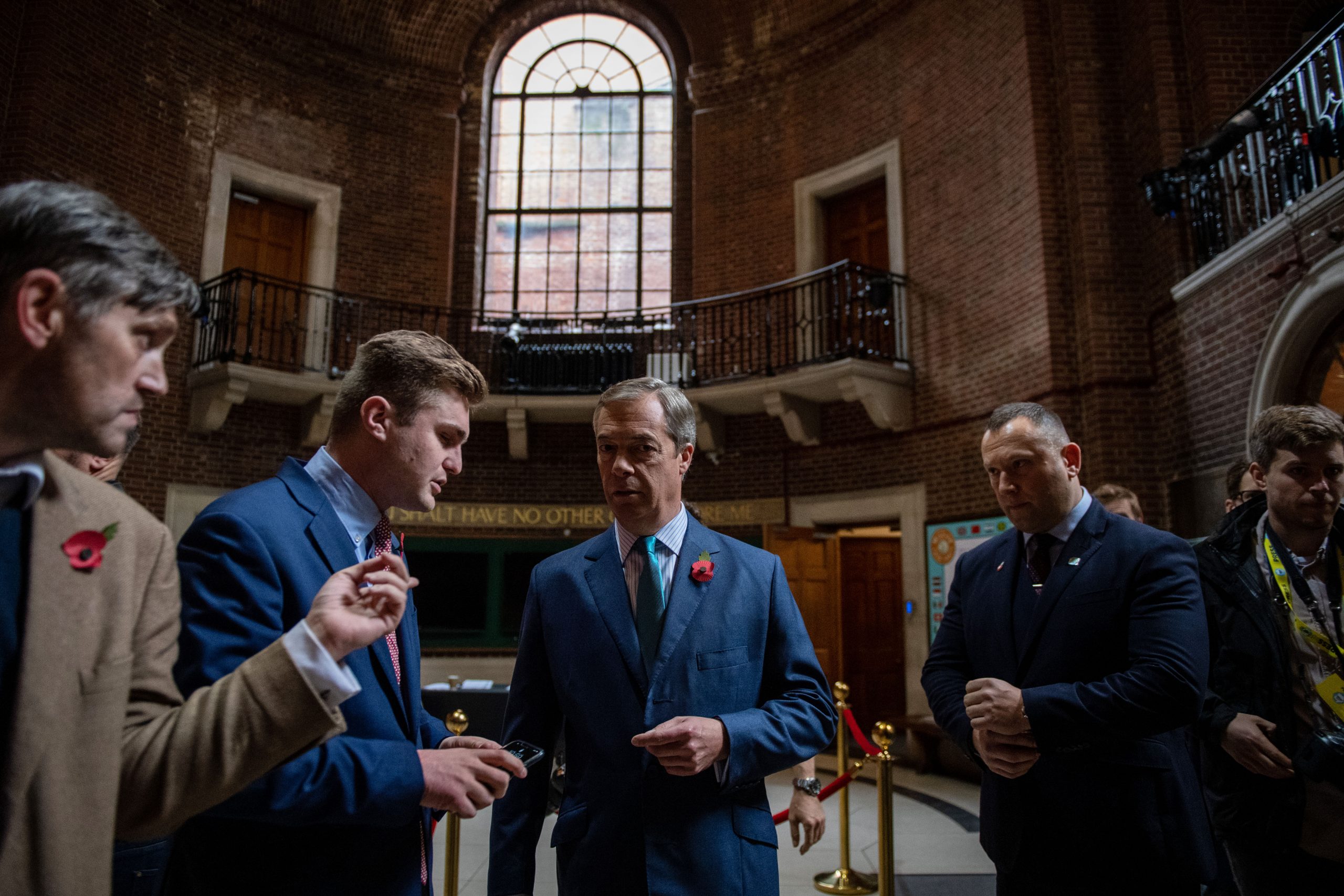
We’re still in the European Union. The Conservative Party is offering a Brexit deal that has been criticised by Remainers, and declared inadequate by Donald Trump. Could Nigel Farage’s Brexit Party finally do what Farage’s parties have never managed to do before, and gain seats at Westminster
Well, we should caveat any statement about the looming election with the following statements. Firstly, the campaign is less than a week old, we have a six-week campaign ahead of us, and anything could happen. Looking across the globe, we can see how elections have been upended in far less time: whether that be Catalonian independence shooting up the agenda, complicating Pedro Sanchez’s electoral hopes, or Justin Trudeau’s easy glide to a second successive majority being undone by the resignation of several cabinet ministers.
Secondly, and more specifically, we have an incredibly volatile electorate and an electoral system that is poorly designed to deal with that volatility. One cause of that is that we’re more likely to back small parties and also more likely to abandon them. Plug four or more strong parties into first-past-the-post and the result is essentially unpredictable. And there are a handful of seats, in Essex and Wales, where the Brexit Party vote is concentrated enough that it ought to be able to win seats.
So the possibility for a surprise Brexit Party gain, thanks to an unexpected surge for one party or another, is a live one. But against that we have to reckon with the long history of Farage’s failed attempts to turn votes into seats under first-past-the-post. Parties he runs, whether they be Ukip or the Brexit Party, have a familiar series of institutional failings that, coupled with the unfairness of our electoral system, has seen them fall short time and again.
Neither party has successfully built up a strong local government base. And when it has won council seats, its councillors have tended to perform badly, holding few surgeries and doing little to bed themselves in. The contrast with their opponents on the other side of the Brexit pole, the Liberal Democrats, is marked. As one Labour MP once explained to me, Liberal Democrat councillors are “like knotweed. They win a by-election. They work hard. They win the rest of the ward. They work hard. They become the largest opposition party. They work hard. They take over the council. They work hard. Then you wake up and suddenly you’re unemployed and they’ve got the parliamentary seat.” While there are some exceptions, most Ukip councillors failed to learn that lesson — and there is no evidence that the 36 councillors the Brexit Party has via defection have done any better.
We’ve already seen the party fail to win a by-election held under ideal circumstances — in the pro-Leave constituency of Peterborough, where the incumbent opposition MP had been recalled after being sent to prison, after the government had failed to deliver Brexit — because they lacked the organisational capability to pull off a win.
The other parties have a much better track record at a) finding their voters and b) turning their voters out. There is no evidence that Farage has learnt how to do that yet. So the chances of his party winning seats remain, even in a volatile election, very low.





